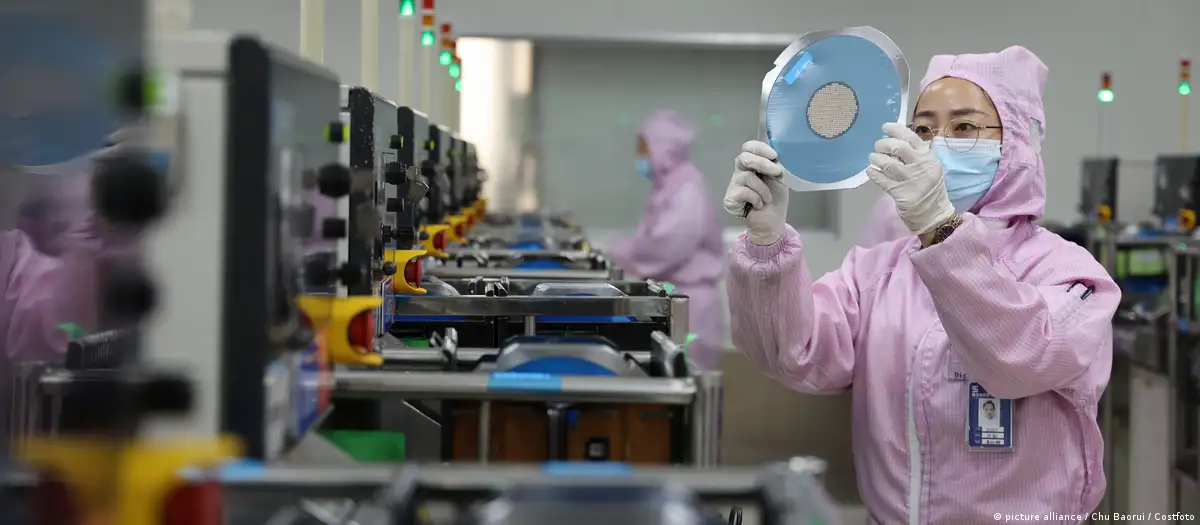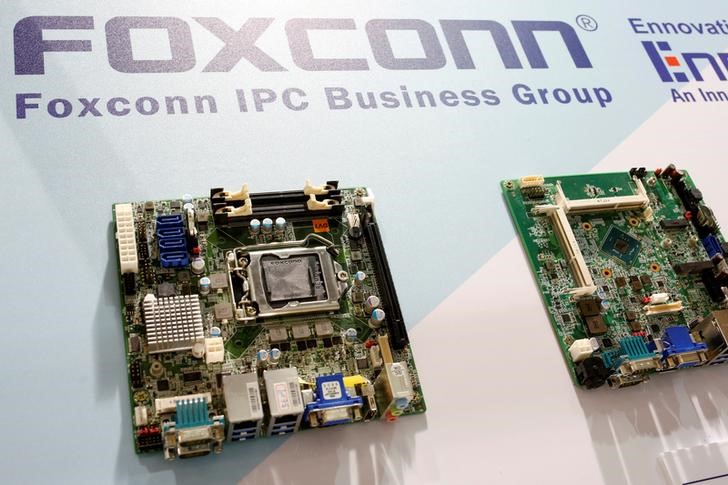
Legacy chips, used in everything from washing machines to cars and TVs to medical devices, may not be as powerful as the state-of-the-art semiconductors that power artificial intelligence (AI) platforms. But they’re a growing headache for the United States and European Union due to China’s market dominance.
Washington has already blocked Chinese firms from accessing Western-designed cutting-edge chips in the hope of delaying Beijing’s ambition of becoming a technology superpower. Attention has now turned to so-called legacy chips, of which China currently has close to a third of the world’s manufacturing capacity.
Faced with limited access to the more advanced chips, Beijing has sharply stepped up investments in the production of mature chip technology. In September, the Chinese government announced a $40 billion (€37 billion) state-backed investment fund to bolster domestic semiconductor production. That move strengthened industry calls for Western nations to take action to shore up their own chipmakers.
“[Current US] export controls only apply to advanced technologies, with the impact on mature technologies limited,” Joanne Chiao, an analyst at the Taiwan-based chip research house TrendForce, told DW.
US, EU set to review China’s chip dominance
In December, the Biden administration ordered a review of the entire semiconductor supply chain to assess China’s dominance of legacy chips. A meeting of the EU-US Trade and Technology Council, held this week in the Belgian city of Leuven, could prompt a similar review by the European Commission, the EU’s executive arm.
A statement from the Council following the talks hinted at possible EU action, saying the two “may develop joint or cooperative measures to address distortionary effects on the global supply chain for legacy semiconductors.”
“The pressure is on to do something, but the question is how effective would any curbs be?” semiconductor sector analyst Malcolm Penn told DW.
Will China dump cheap chips?
If China were to flood the market with legacy chips subsidized by Beijing, Western chipmakers could be quickly priced out, industry insiders warn. They point to a similar dumping of cheap Chinese solar panels that Brussels says has given the Asian powerhouse an unfair advantage.
“If companies like Lam Research and Applied Materials lose half their market permanently, they would have to downsize as they’re geared up to serve a market that will grow to twice as large as it is now,” Penn said, referring to two of the top US legacy chipmakers.
Source: IN FOCUS








